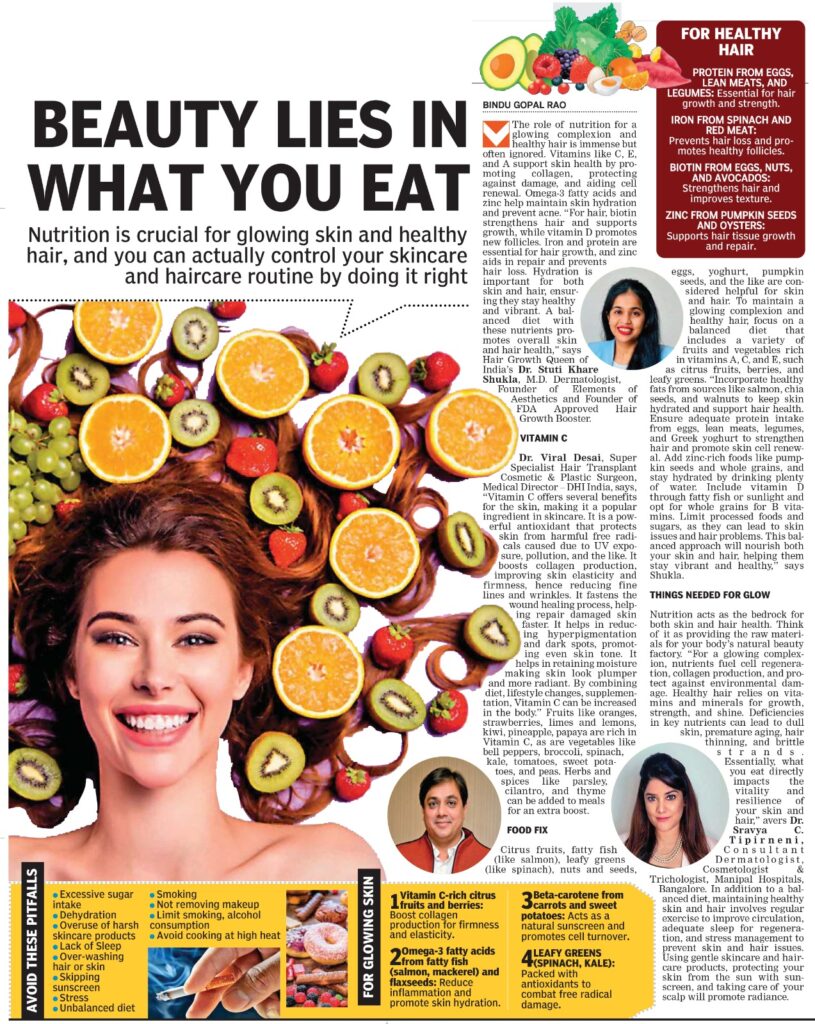
To achieve that radiant glow and luscious locks, prioritise nutrient-rich foods that will do a world of good for your skin and hair health.
A balanced diet is key. Here’s a practical approach:
- Prioritize whole foods: Focus on fruits, vegetables, lean proteins, and whole grains.
- Incorporate healthy fats: Include sources like avocados, nuts, seeds, and olive oil.
- Stay hydrated: Drink plenty of water and herbal teas.
- Limit processed foods, sugary drinks, and excessive caffeine.
- Consider a colourful plate: A variety of colours indicates a wider range of nutrients.
- Listen to your body: Pay attention to how different foods affect your skin and hair, and adjust your diet accordingly.
Pitfalls to avoid
- While focusing on beneficial foods, be mindful of these dietary pitfalls:
- Excessive sugar intake: Can lead to inflammation, premature aging, and acne breakouts.
- Highly processed foods: Lack essential nutrients and can contribute to dull skin and hair.
- Dehydration: Skin loses its plumpness and hair becomes brittle. Drink plenty of water throughout the day.
- Crash diets: Lead to nutrient deficiencies, resulting in hair loss and dull skin.
- Excessive consumption of Dairy: For some individuals can cause increased skin issues.
Beyond diet, consider these additional factors:
- Stress management: Chronic stress can negatively impact skin and hair health. Practices like yoga and meditation can be beneficial.
- Adequate sleep: During sleep, your body repairs and regenerates cells, crucial for healthy skin and hair.
- Sun protection: Use sunscreen daily to protect your skin from harmful UV rays.
- Gentle hair care: Avoid harsh chemicals and excessive heat styling.
- Gut health: A healthy gut microbiome can positively influence skin health. Incorporate probiotic-rich foods or supplements.
- Seasonal eating: Eating foods that are in season, will provide your body with the nutrients that it needs during that time of year.
- Supplementation: If there are known deficiencies, work with a doctor or registered dietician to add the correct supplements. Do not self-supplement.
- Local Foods: Consider the local foods that your region offers, as these foods are generally very nutritious for the people that live in that region.
Read the full story that first appeared in Deccan Chronicle dated May 8, 2025 here:


Leave a Reply